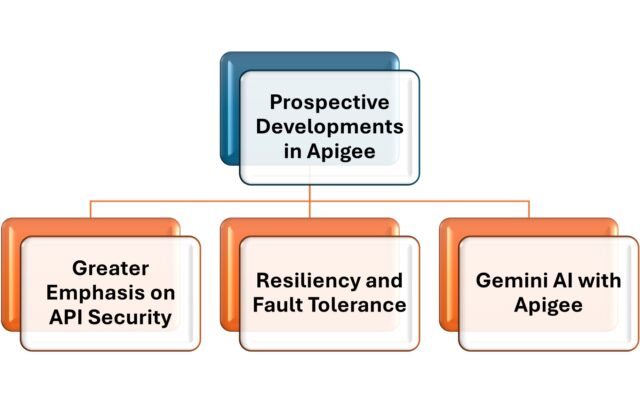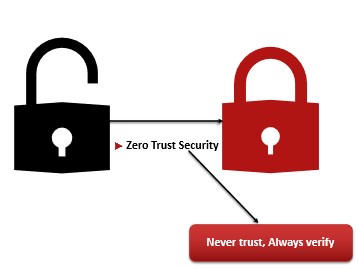Application programming interfaces, or APIs, are crucial to the ever-changing digital transformation landscape because they enable businesses to interact with their data and services promptly and effectively. Effective administration is therefore necessary to guarantee that these APIs operate as intended, remain secure, and offer the intended advantages. This is where Apigee, Google Cloud’s premier API management solution, is helpful.
What is Apigee?
Apigee is an excellent tool for businesses wanting to manage their APIs smoothly. It simplifies the process of creating, scaling, securing, and deploying APIs, making developers’ work easier. One of Apigee’s best features is its flexibility—it can manage both external APIs for third-party access and internal APIs for company use, making it suitable for companies of all sizes. Apigee also works well with security layers like Nginx, which adds a layer of authentication between Apigee and backend systems. This flexibility and security make Apigee a reliable and easy-to-use platform for managing APIs.
What is Gemini AI?
Gemini AI is an advanced artificial intelligence tool that enhances the management and functionality of APIs. Think of it as a smart assistant that helps automate tasks, answer questions, and improve security for API systems like Apigee. For example, if a developer needs help setting up an API, Gemini AI can guide them with instructions, formats, and even create new APIs based on simple language input. It can also answer common user questions or handle customer inquiries automatically, making the whole process faster and more efficient. Essentially, Gemini AI brings intelligence and automation to API management, helping businesses run their systems smoothly and securely.
Why Should Consumers Opt for Gemini AI with Apigee?
Consumers should choose Gemini AI with Apigee because it offers more innovative, faster, and more secure API management. It also brings security, efficiency, and ease of use to API management, making it a valuable choice for businesses that want to streamline their operations and ensure their APIs are fast, reliable, and secure. Here are some key benefits: Enhanced Security, Faster Development, and Time-Saving Automation.
Below is the flow diagram for Prospective Developments in APIGEE.

Greater Emphasis on API Security
- Zero Trust Security: The Zero Trust security approach is founded on “never trust, always verify,” which states that no device or user should ever be presumed trustworthy, whether connected to the network or not. Each request for resource access under this architecture must undergo thorough verification.
- Zero Trust Models: APIs will increasingly adopt zero-trust security principles, ensuring no entity is trusted by default. The future of Zero-Trust in Apigee will likely focus on increasing the security and flexibility of API management through tighter integration with identity management, real-time monitoring, and advanced threat protection technologies.
- Enhanced Data Encryption: Future developments might include more substantial data encryption capabilities, both in transit and at rest, to protect sensitive information in compliance with Zero Trust principles.

Resiliency and Fault Tolerance
The future of resiliency and fault tolerance in Apigee will likely involve advancements and innovations driven by evolving technological trends and user needs. Here are some key areas where we can expect Apigee to enhance its resiliency and fault tolerance capabilities.

- Automated Failover: Future iterations of Apigee will likely have improved automated failover features, guaranteeing that traffic is redirected as quickly as possible in case of delays or outages. More advanced failure detection and failover methods could be a part of this.
- Adaptive Traffic Routing: Future updates could include more dynamic and intelligent traffic management features. This might involve adaptive routing based on real-time performance metrics, enabling more responsive adjustments to traffic patterns and load distribution.
- Flexible API Gateway Configurations: Future enhancements could provide more flexibility in configuring API gateways to better handle different fault scenarios. This includes custom policies for fault tolerance, enhanced error handling, and more configurable redundancy options.
Gemini AI with Apigee
Gemini AI and Apigee’s integration has the potential to improve significantly API administration by enhancing its intelligence, security, and usability. Organizations can anticipate improved security, more effective operations, and better overall user and developer experience by utilizing cutting-edge AI technologies. This integration may open the door to future breakthroughs and capabilities as AI and API management technologies develop. If the API specifications that are currently available in API Hub do not satisfy your needs, you can utilize Gemini to create a new one by just stating your needs in basic English. Considerable time is saved in the cycles of development and assessment.
Gemini AI can inform you about the policy documentation in parallel while adding policies to the Apigee development. Gemini AI can guide you with the formats used in the policies. We can automate the query region like chatbots with Gemini AI. We may utilize Gemini AI to improve and get answers to questions about the APIs available on the Apigee portal.
If any integration is currently in use. We can use Gemini AI to accept inquiries from customers or clients and automate the most frequently asked responses. Additionally, Gemini AI can simply reply to customers until our professionals are active.
Overview
Apigee, Google Cloud’s API management platform, plays a key role in digital transformation by securely and flexibly connecting businesses with data and services. Future advancements focus on stronger security with a “Zero Trust” approach, improved resilience through automated failover and adaptive traffic routing, and enhanced flexibility in API gateway settings. Integration with Gemini AI will make Apigee smarter, enabling automated support, policy guidance, API creation, streamlining development, and improving customer service.
Source: Read MoreÂ



